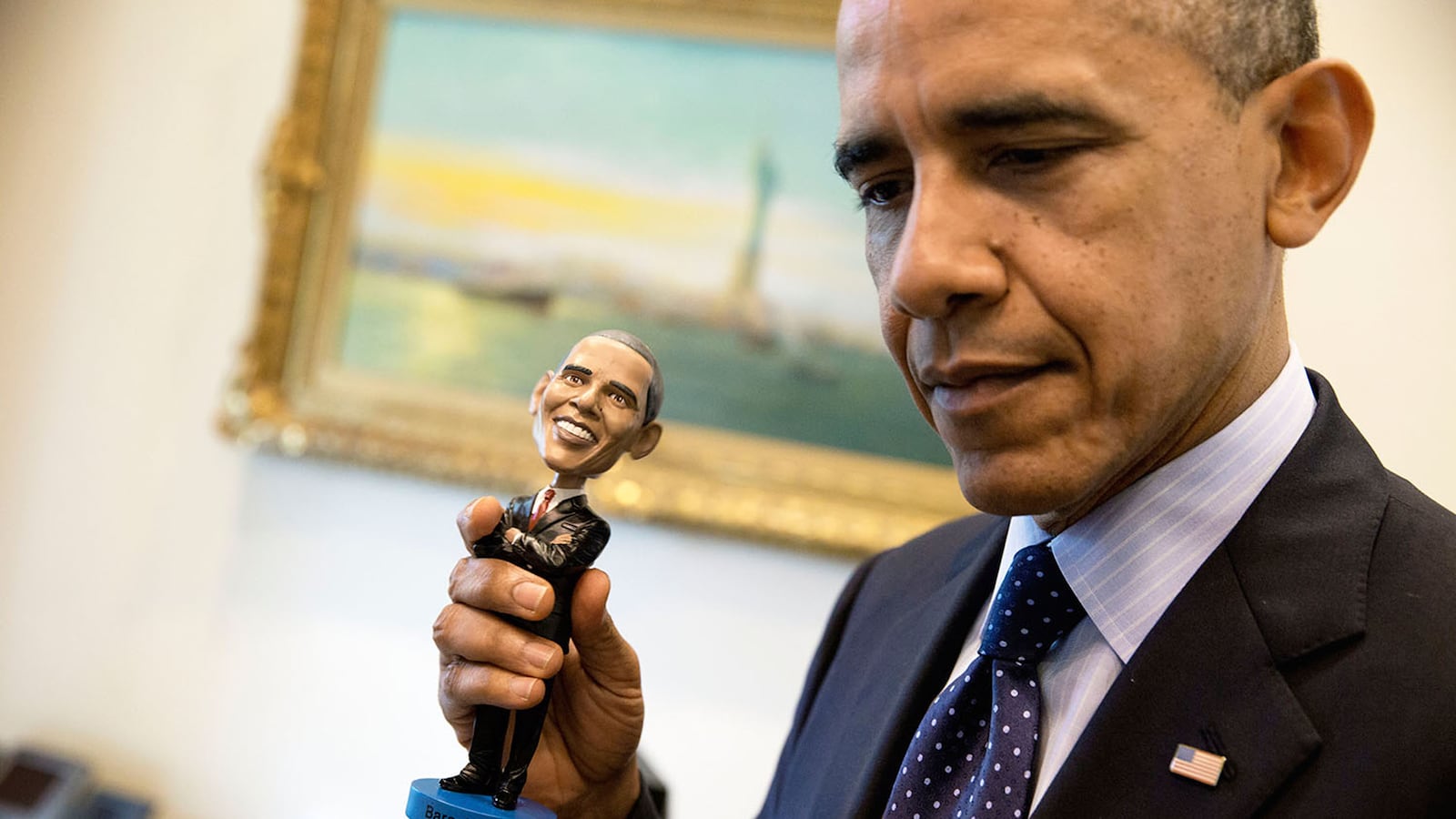So now it’s officially campaign season, the fourth and last of the Obama era. The 2008 election saw Obama’s ascendant America rise up after eight conservative years and announce itself. For the 2010 election, the other America was able to gather its armies (if you’re a good political junkie, you’ll get the reference) and say to Obama’s America, “We hate everything you’re doing, and we’re going to stop you.” In the 2012 contest, Obama’s America managed to reassert itself with more ferocity than most experts expected. The three elections were all about the same thing—hope for this new future the Obama coalition seemed to augur, or fear of it.
Now? The hope tank is running on fumes. Even for those who don’t blame Obama for Washington’s paralysis, the mere fact of the dysfunction—the dismal relentlessness of it, the realization that it will not change—has led most people to throw in the towel to one extent or another. As for the fear, well, it’s still present, of course, and it may yet exist at a level of intensity great enough give Republicans a Senate majority. But it could also be that the Republicans have scorched so much earth these past six years that it’s finally starting to singe their own boot heels. Thus, the Democrats’ best hope for November: that enough voters in enough key states are sicker of the Republicans than of them.
Encouragingly, we’re starting to see a little bit of evidence that this may finally be the case. Politico posted an interesting piece Monday detailing how Republicans, who just two or three months ago were speaking expansively of vigorous gains in the House, were now dialing back the expectations meter from 25-plus seats to under half that. The Democratic PACs had outraised them, which is an interesting little factoid in and of itself. But the most arresting sentence in the piece was the one that said: “Nearly a year after the government shutdown, Republicans privately say the party’s tattered public image is dragging down candidates in key races.”
I’d love to think this was true. It’s been no secret that the GOP’s basic m.o. for the last six years has been to oppose everything Obama proposes. What is less clearly understood, however, is why. The reason is usually assumed to be ideological fervor, and while Lord knows there’s plenty of that, I think that the real reason for the wall of total opposition, especially among the savvier obstructionists, is something slightly subtler and more tactical—it’s to make Obama look feckless and weak, like a president who can’t pass a kidney stone.
You see, they know very well that the average American knows very little about how Washington works and just assumes that the president, simply by virtue of being president, can more or less tell Congress “this is what I want done,” and it gets done. What percentage of Americans knows, for example, that 41 senators can block almost anything? If it’s more than 8 percent, I’ll eat my hat in Macy’s proverbial window.
And the Republicans know further, as recovering GOP Hill staffer Mike Lofgren put it in what is still for my shekel the seminal piece of confessional journalism of the Obama-Tea Party era, that all this dysfunction, while it makes both parties and Washington as a whole look bad, inescapably makes the Democrats look worse, because the Democrats are the party of government, so when government fails, that breakdown bleeds its way into the collective public consciousness as more of a Democratic failure than a Republican one. Lofgren’s money paragraph:
A couple of years ago, a Republican committee staff director told me candidly (and proudly) what the method was to all this obstruction and disruption. Should Republicans succeed in obstructing the Senate from doing its job, it would further lower Congress’s generic favorability rating among the American people. By sabotaging the reputation of an institution of government, the party that is programmatically against government would come out the relative winner.
It’s a great racket, and it has worked like a dream. It has made Obama look feckless and weak (and he’s done plenty of that on his own, too, especially in the foreign-policy realm). And although the Republican Congress is about as popular as hepatitis, it hasn’t hurt them a bit in electoral terms.
Well, if this election works out reasonably well for the Democrats, it will be because that changed—because the Republicans finally pushed it too far. They’re going to keep control of the House, obviously, but if they fail to gain many seats—25 pickups for the out-party is the average in the last half-century—it will be a sign that even an off-year electorate (i.e., fewer base-Democratic voters) is catching on to the con. And if they don’t take the Senate—if Kay Hagan in North Carolina and Mary Landrieu in Louisiana hold on, if the Democrats carry Iowa and Michigan, and if either Michelle Nunn in Georgia or Alison Lundergan Grimes in Kentucky can eke out a win—then it will be clear enough that the voters didn’t want to give a party that’s behaved as the GOP has these recent years even more power.
And if the opposite happens, well, then the Republicans will carry on as they have, but only more so. They’ll run around boasting about how they finally conquered Obama, and they’ll do whatever they can to visit disgrace on him during the last two years. Too much of Obama’s America is just too worn down. In that sense, the scorched-earth campaign has won. But Republicans should remember that in 2016, that America will be back, and bigger by a few percentage points than before, and still hungry to win the fights the obstructionists have blocked.






